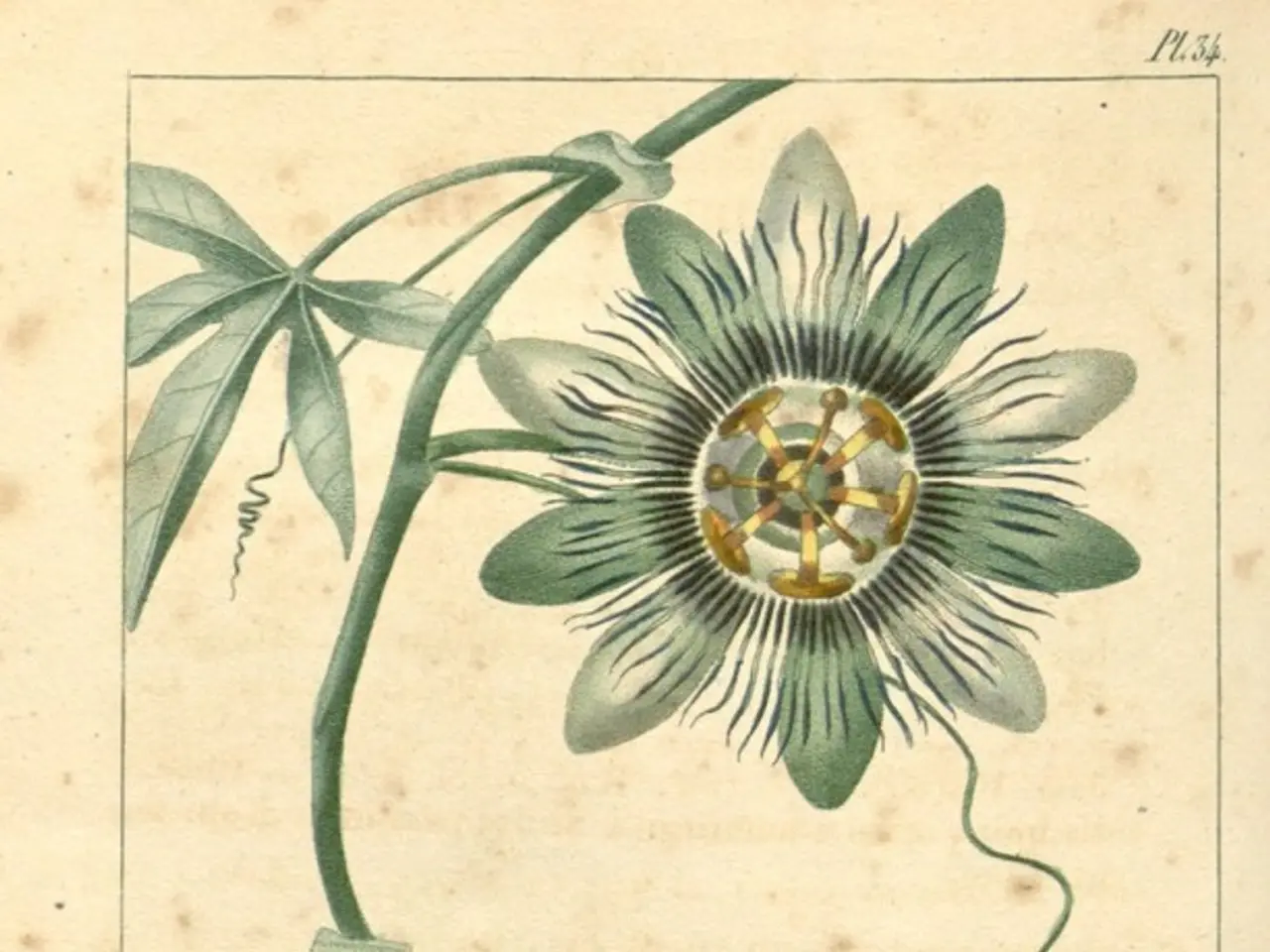Ancient Gardening Tool from Roman Era Still Relevant Today: The Surprising Importance of Including This Tool in Your Garden Rituals
In the world of gardening, having the right tools can make all the difference. One such tool that's gaining popularity is the dibble, a versatile gardening implement used for planting seeds, bulbs, or small plants.
Dibbles come in various shapes and sizes, making them suitable for a wide range of gardening tasks. For instance, long dibbles, such as the 30-inch dibble from Gardener's Supply, are tall enough for standing use, beneficial for mature gardeners or those with mobility issues. They often have ergonomic handles for pain-free planting.
For precision planting, a hand-turned wooden dibble is ideal. This traditional tool, often made from oak, is about 8 to 8.5 inches long and marked with depth increments up to 5 inches. It's perfect for tasks like planting tulip bulbs or other spring bulbs, as the pointed end easily pokes holes in the soil at the correct depth, and swirling the handle can enlarge the hole for bigger bulbs or seedlings.
On the other hand, a metal planting bar dibble is beneficial for planting tree seedlings and larger plants. It's used by inserting the dibble at a 45-degree angle, pushing it straight up to create the hole, then placing the seedling and firming soil around it to ensure proper root contact.
For gardeners with diverse plantings, a variety of dibbles and related tools like trowels and dibblers with varying bevel angles can be beneficial. These tools support different sizes and depths of holes suitable for a variety of plants, from small seeds to larger root vegetables and transplants.
Dibbles can also serve multiple purposes beyond planting. They can be used for loosening root systems, cleaning dirt from tubers, aerating soil, and helping water reach plant root systems.
When direct sowing seeds, transplanting small plants, or planting bulbs outdoors, it's important to ensure the soil is free of weeds that may impede growth. Simply insert the dibble into the soil and twist until reaching the desired planting depth, then plant seeds, bulbs, or transplants.
Dibbles can be made from wood, hardwood, plastic, metal, or stainless steel. Stainless steel dibbles, like the highly-rated option from Amazon, are easy to clean and resistant to rust. For starting seeds indoors, use a seed starting mix like the one from Miracle-Gro at Home Depot.
For gardeners who prefer a more efficient planting process, multi-seed dibbers, like the one from Muldale, make planting in trays simple and efficient by creating multiple holes at once.
In the end, the best types of dibbles for different gardening tasks vary depending on the size and type of planting you need to do. By choosing the right dibble for your needs, you can ensure optimal planting depth and hole size tailored to the task, improving seedling success and garden efficiency.
Laura Walters, a Content Editor, joined the platform in 2021 and enjoys providing gardeners with the knowledge they need to succeed in an easy and entertaining format. She lives in Southwest Ohio and spends her summers on a lake in Northern Michigan.
A home-and-garden enthusiast may find the traditional hand-turned wooden dibble ideal for precision planting tasks, such as those involving tulip bulbs or spring bulbs, due to its pointed end and depth increments. Gardeners with mature plants or mobility issues, on the other hand, might favor longer dibbles with ergonomic handles, like the 30-inch dibble from Gardener's Supply, for a more comfortable planting experience.




